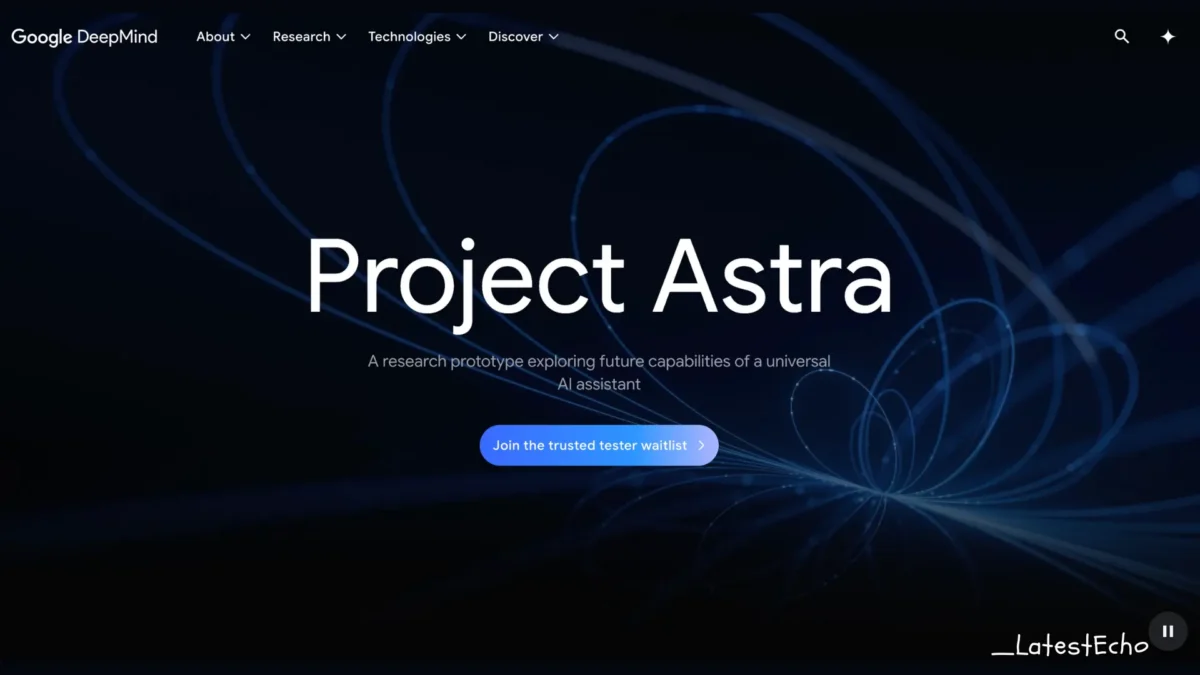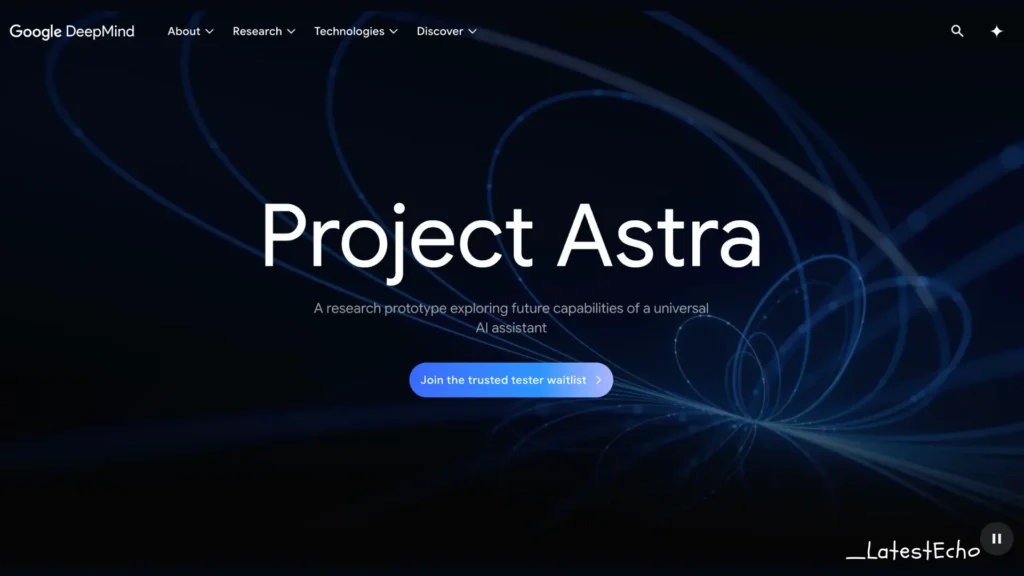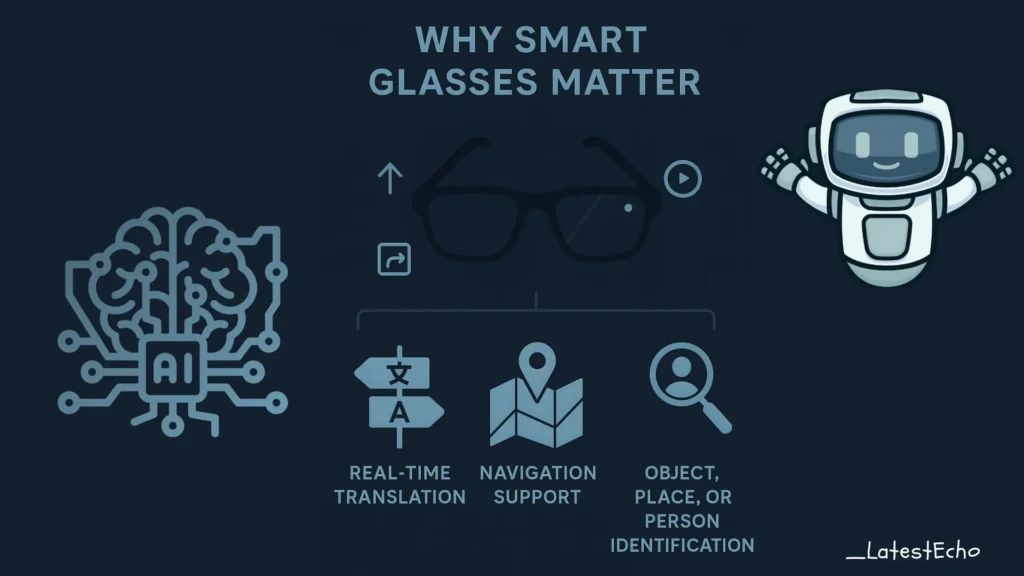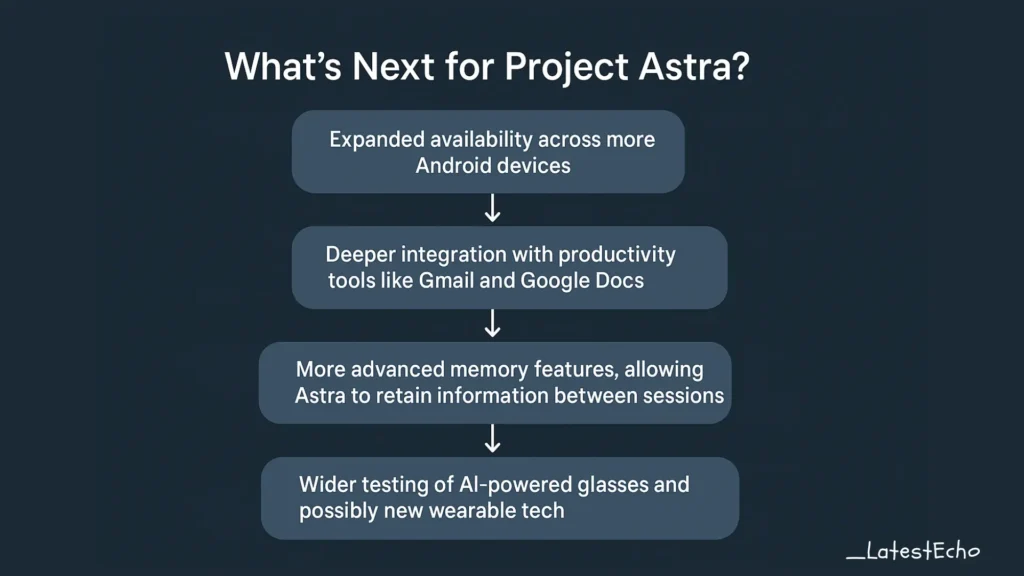
What is Project Astra? Everything You Need to Know!

Introduction
What if your digital assistant could see, hear, and remember everything in real time—just like a human companion? That’s the bold promise behind Project Astra, the latest breakthrough from Google DeepMind.
Designed as a next-generation AI helper, Project Astra combines vision, voice, and memory to create a more natural and intelligent way of interacting with technology. Rather than simply responding to commands, it can observe your environment, hold dynamic conversations, and adapt to what’s happening around you.
As Google continues to test this futuristic assistant, Astra may soon become a central part of how we experience AI in our daily lives.
Key Highlights
- Developed by Google DeepMind to function as an all-in-one intelligent assistant.
- Uses multimodal capabilities, combining visual and auditory input.
- Introduces short-term memory to enable ongoing, context-aware interactions.
- Can analyze surroundings via phone cameras or wearable smart glasses.
- Core tools now being integrated into Gemini Live for select Android users.
- Public rollout expected later in 2025, with early testing already underway.
You can also read our recent articles on Canva Code: Coding Made Easy, Bezos’ Slate EV Revolution, Bitcoin Stays Strong Amid Tariff, Tariff, Trade War and Recession, Nvidia AI Powerhouse, DeepSeek’s AI Power.
What Is Project Astra?
Project Astra is an ambitious AI platform developed to act more like a helpful partner than a typical assistant. Instead of relying solely on typed or spoken input, Astra can interpret what a person is looking at, listen to their requests, and respond with relevant, real-time insights.
This assistant isn’t limited to scripted responses or keyword matching. It combines voice commands with live video and screen analysis, making conversations feel more interactive and human-like. Whether you’re walking down the street or troubleshooting a gadget, Astra aims to provide support that’s both situationally aware and responsive.
How Does It Work?
At its core, Astra is powered by multimodal AI, which means it can process and combine different types of input—like audio, visuals, and context—from the user’s environment. For instance, you could:
- Point your phone at a product or object and ask for details.
- Show it a diagram and request help understanding it.
- Record a video feed while asking questions along the way.
By combining input from your voice and what the camera sees, Astra generates smarter and more personalized replies. It can even keep track of what you’ve already said during a session, so you don’t have to repeat yourself.
Where Is Astra Available?
While the full system isn’t publicly released yet, early features tied to Project Astra are now being offered through Gemini Live—a premium version of Google’s Gemini AI experience. Users subscribed to the Google One AI Premium plan on Android devices can try some of Astra’s capabilities, including voice interaction and screen-sharing support.
Google is also trialing the assistant on a new form of experimental smart glasses, allowing Astra to operate with continuous visual input. Though not yet for sale, these prototypes are part of Google’s vision for AI-powered wearables.
Key Capabilities That Set Project Astra Apart
- Understands What You See and Say: Instead of choosing between typing or talking, Astra supports simultaneous voice and visual interaction. This creates a more natural experience—especially for users who are moving, multitasking, or dealing with visual tasks.
- Remembers What’s Happening: Unlike traditional assistants that forget previous exchanges, Astra can retain information during a session. If you ask a follow-up question a few minutes later, it will understand what you’re referring to without needing a full explanation.
- Helps With What’s On-Screen: One of Astra’s more exciting tools is its ability to analyze live video or screen content. For example, if you’re sharing your phone screen and ask how to fix a setting, Astra can recognize what’s shown and guide you step-by-step.
- Built Into Google’s Ecosystem: Astra doesn’t operate in isolation. It leverages the Google suite of tools—from Search and Maps to Lens and Translate—so it can pull useful data on the fly. That integration means it can, for example, identify landmarks, provide local directions, or explain text in another language.
Why Smart Glasses Matter

While most users will access Astra through their phones, Google’s smart glasses bring a more immersive level of interaction. These wearable devices let Astra continuously observe and interpret the user’s environment. That opens the door for:
- Real-time translations of signs and menus.
- Navigation support with live guidance.
- Help identifying objects, places, or even people.
Though still in development, these glasses hint at a future where AI becomes a constant companion, always ready to assist without requiring a screen.
What’s Next for Project Astra?

Google has not confirmed a public launch date for the full version of Project Astra, but the rollout of features within Gemini Live shows rapid progress. Over the coming months, users can expect:
- Expanded availability across more Android devices.
- Deeper integration with productivity tools like Gmail and Google Docs.
- More advanced memory features, allowing Astra to retain information between sessions.
- Wider testing of AI-powered glasses and possibly new wearable tech.
Project Astra is more than a product—it’s part of Google’s vision for an always-on AI experience that understands and adapts to your world.
Conclusion
Project Astra marks a bold step toward true intelligent assistance—where your AI doesn’t just hear commands but understands your surroundings, intentions, and needs. As Google continues to refine this technology, we’re getting closer to an era where digital tools blend seamlessly into our everyday lives.
Whether you’re navigating city streets, working on a project, or just curious about the world around you, Astra promises to be the always-aware, always-helpful AI partner of the future.
Frequently Asked Questions
Q: Can I try Project Astra now?
Some of its features are available via Gemini Live on Android, but the complete Astra experience is still in testing.
Q: Is Astra replacing Google Assistant?
Not yet, but it’s likely that Astra and Gemini will eventually merge to form a more advanced version of Google Assistant.
Q: How private is Astra?
Google has shared limited information about Astra’s data policies. However, session memory is believed to be temporary, with user privacy being a core design principle.
Q: Do I need special hardware for Astra?
Most current features work on Android phones with the Gemini app, though smart glasses are being tested separately.
